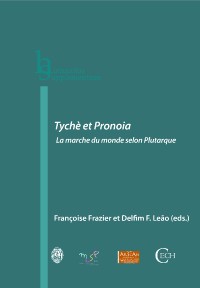Please use this identifier to cite or link to this item:
https://hdl.handle.net/10316.2/31662| Title: | La doctrina de las ἐπελεύσεις y la liberdad de indiferencia: de Aristón de Quíos a Arcesilao (Plut., Stoic. rep. 23, 1045 B-F) | Authors: | Caballero, Raúl | Issue Date: | 2010 | Publisher: | Centro de Estudos Clássicos e Humanísticos | Journal: | http://hdl.handle.net/10316.2/2345 | Abstract: | In chapter 23 of The Contradictions of the Stoics, Plutarch, far from referring to the Epicurean theory of clinamen, gives a puzzling description of the academic interpretation of the theory of ἐπελεύσεις/occurrentia by Ariston of Chios. Arguing against the doctrine of the Stoic Ariston, Arcesilaus tried to demonstrate to his antagonist that the assent does not serve as a starting point for the impulse when one is forced to opt for one of two indistinguishable representations (e. g. to choose one of two identical drachmas). In order to release the impulse from the tyranny of such representations, and not to fall into paralysis, some philosophers – according to our hypothesis, Arcesilaus and Academics in controversy with the Stoic Ariston –, have located in the central commanding faculty of the soul a kind of adventitious movement or faculty that, providing an instantaneous inclination, sets in motion the impulse without the need of assent. | URI: | https://hdl.handle.net/10316.2/31662 | ISBN: | 978-989-8281-53-1 (PDF) | DOI: | 10.14195/978-989-8281-53-1_3 | Rights: | open access |
| Appears in Collections: | Tychè et Pronoia: la marche du monde selon Plutarque |
Files in This Item:
| File | Description | Size | Format | |
|---|---|---|---|---|
| 1_3-_tyche_et_pronoia.pdf | 583.15 kB | Adobe PDF |  |
Items in DSpace are protected by copyright, with all rights reserved, unless otherwise indicated.
